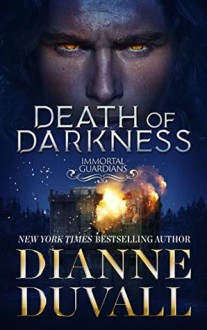
This book is dominated by a complex plot, pivoting around the independent but interlocking actions of three men, each of whom uses violence, mostly against women, to defend things that they see as central to their sense of self.
It also pushes the relationship between the Priest and the Sherrif beyond any pretence of being platonic.
If this hadn't been the fourth book in the series, I might have set it aside after the first chapter.
It opens with a woman awakening alone and finding herself bound and with no knowledge of where she is or how she got there. It was scenes like that that led to me abandoning "Criminal Minds". It's too close to turning horror into either banality or voyeurism.
The book righted itself quickly, coming back to characters and a writing style that I recognised but it left me wondering if this was going to be another book looking at the bad things that men do to women in a way that revels a little too much in the power the violence gives to the men.
I should have had more faith in Julia Spencer-Fleming. She delivered a book which is about men who commit acts of violence against women and sometimes men, but the focus isn't on the violence but on the process by which these men convince themselves that what they are doing is, if not right, then necessary, especially if they can get away with it. I found myself being impressed by the way each of the men, with different perceived threats, different hopes and different social situations trod, independently, the same path to violence, or, as the title has it, to darkness and to death.
The plot that interlocks the stories of these three men is intricate. The linkages are complex and clever, The reveals kept me guessing and cranked up the tension with the actions of each man amplifying the damage done by the others.
In the midst of all of this, we have Claire and Russ, the Priest and the Sheriff, bringing humanity to the story and preventing it from degrading into a clever but mechanical thriller. Seeing people through Claire's eyes or Russ' eyes makes them more real. It allows us to see them as more than plot devices.
The book also moves forward the story arc of the unlooked-for but inescapable attraction between Claire and the very married Russ. I thought this part of the story was very well done. Clichés and moral judgements were both avoided. Instead, we were shown too fundamentally good people who want something that they can't have without becoming different people than the ones they want to be. It seems clear that Claire and Russ have reached a point where they will have to make a decision. I think it shows how well this was written that I found myself unable to say what should happen next and was only certain that they can't stay as they are.
I'll be back for book five and hoping that Claire and Russ find a path and that the next plot is a little less violent.

 Log in with Facebook
Log in with Facebook 
 Door 13 Advent
Door 13 Advent






